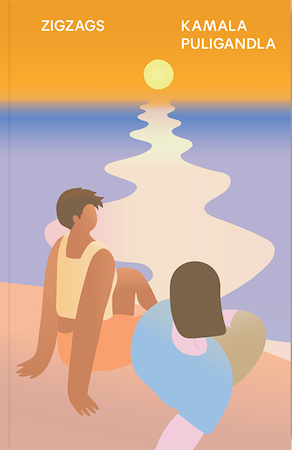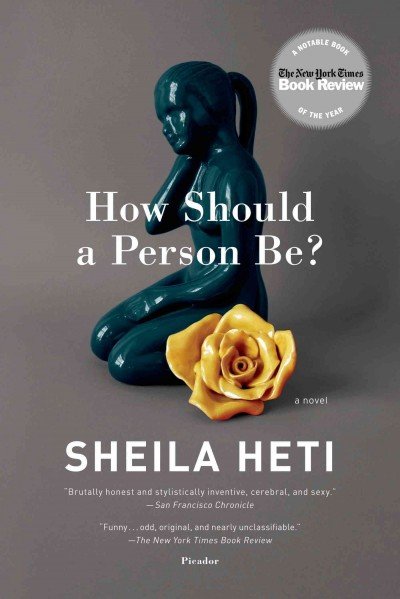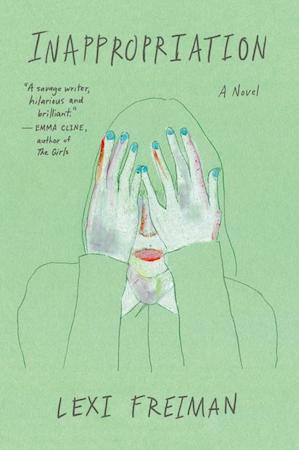Reading Lists
7 Books About the Power Dynamics of Parties
Kamala Puligandla, author of "Zigzags," on the social hierarchies of friend groups

I’m an extrovert. I’ve always been fascinated with parties and group dynamics. Maybe it’s because I have a soft spot for things that are sensitive and alive, that can change at any moment. I’ve spent a lot of my life in kitchens and bathrooms with women at parties, and I’m telling you, there’s always something in precarious balance: a secret bubbling up, a reckoning on the horizon, the last straw. Plus my main life hobby is trying to discover new and previously unknown sides of people, beyond the version we both know. In high school, I relished the rare moment when a well-behaved, rule-following friend would trust me to take them to a party, and I’d get to see who they could be after two beers.

So, of course, I love reading books about a group of friends. When I follow a pod of people whose emotions and motivations are intertwined, it means I’m headed somewhere extra wonderful and extra devastating. That’s what I like to think I wrote into my novel Zigzags. It’s a book that follows Aneehsa, who is a queer, Asian American woman in her mid-20s (yes, she is a past version of me), and a group of her close friends, who all met at a bar in Rogers Park in Chicago. After Aneesha moves away for grad school, she comes back for the summer to see if she can hold on to these relationships that have felt like home. As you might expect, it’s a little complicated.
My favorite part of writing this book, for all of the reasons above, were the party scenes. I like that even though the premise of a gathering is simple—to have fun together—it’s really a much taller order than people expect. Even when it works out, it’s always through some compromise. This year, when I know we’re all hungry for fun and drama, I’m collecting a few books, like mine, that can deliver you a little taste of complex togetherness.
Paul Takes The Form Of A Mortal Girl by Andrea Lawlor
Paul Takes The Form Of A Mortal Girl is an incredible mix of fantasy and hard reality that make the party scenes in this book even juicer. The premise is that Paul has the power to essentially meditate himself into the form of a girl and follow his lust around. There’s a section at the Michigan Womyn’s Festival (where Paul does, in fact, fear the transphobia), where Paul goes from planning to slut it up to suddenly finding himself lesbian u-hauling with a hot dyke, which I really feel shows how transformative a queer party can be.
Long Live The Tribe Of Fatherless Girls by T Kira Madden
What I love about this memoir is the ease with which Madden describes reading a room and figuring out where she fits into it. She’s constantly hanging out in close, precarious groups, where there is always fun, but at a price. There are so many teen girl moments of deciding to be okay with, and even finding a lot of joy within really trying relationships—with her mom, with her dad, with the popular girls. I find the hard-won moments of bliss, when everything does come together, so beautiful.
The Secret History by Donna Tartt
When I think about what is so satisfying about a group dynamic, I’m always taken back to The Secret History because it’s such a great example of how far the limits can get pushed in a close group or how skewed a version of normalcy can become. Donna Tartt is a master of reeling you into an intimate dynamic, and then slapping you with your complicity in it.
How Should A Person Be by Sheila Heti
When this book came out in 2012, critics at the time were very concerned with whether or not anything was happening in a book if the majority of it were dialogue, and if the action were primarily that people’s feelings changed. I personally can’t imagine more thrilling action. I won’t disagree that Sheila and Margaux, the primary friends in this novel, can be annoying, but I was rapt by their group of artist friends, who necessarily spend a lot of their time at events or in conversations. They’re constantly moving through conflict to find a new balance, and that’s really fun!
Super Mutant Magic Academy by Jillian Tamaki
I’m not an avid reader of graphic novels, but this collection of high schoolers who all are at boarding school and practicing some kind of power or magic ability is so gentle, thoughtful and funny. Additionally, it’s gorgeously and whimsically illustrated. I would say that this one is a little less about parties, it’s mostly dorm room and lunch room interactions, whose subtleties make and break these kids’ hearts. I eat that shit up.
Inapporpriation by Lexi Freiman
This is a sharp, witty piece of satire on what I might venture to call Zoomers. The delight in this book is in the absurdly logical—in the fictional sense—way that this group of three prep school teens try to navigate their identities and privileges in order to live “woke,” radical lives. The prom is the ultimate party in this book and it truly delivers, but the main character Ziggy’s family also serves up the same level of drama as any entertaining friend group.
The Mysteries Of Pittsburgh by Michael Chabon
I got into this book when I was in grad school and it turned out to be a guide for how I wanted to structure my own novel. I was thrilled when this early-20s narrator finds himself exploring his unexpected gayness. It’s an attraction that gets him enveloped into a friend group, where he both does and doesn’t belong, and this tension, along with his strong desire to want to know himself and prove himself, makes every single party such a deliciously risky endeavor.















